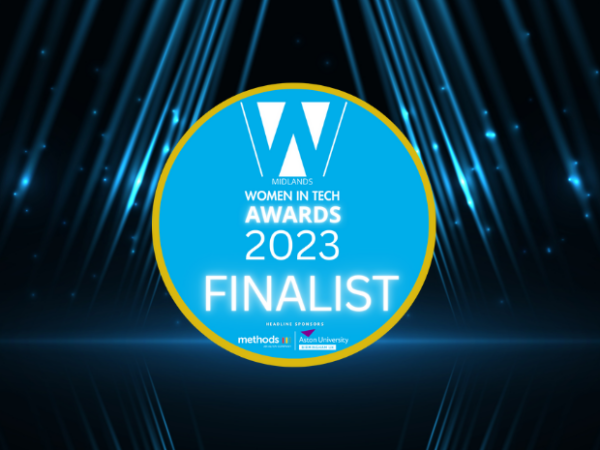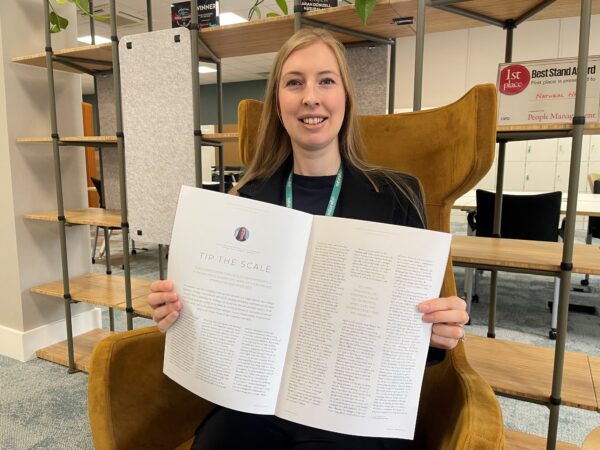I recently attended the London CIPD Future of Work Conference; surprisingly, what I learned from my day out of the office was networking skills! I blogged about these on Natural HR: Networking – 3 top tips for avoiding small talk. But over the last few days, I’ve been reflecting on the day’s content and the information shared by the Speakers.
As an HR software vendor, I looked forward to the big themes on technology, automation, AI (artificial intelligence), and the changes we’ve seen in organisational structures over recent years, especially with the increased focus on the gig economy. Indeed the conference delivered on these themes. As you can see from the photo below, my expectations were met when the gig economy, led by the AI quadrant, took the lead on where we believed the future focus of the people profession to be.
Question: What will the primary focus of the people profession be in 2030?
The leading answer by the end of our lunch break from our peers was: Designing roles that complement AI by focusing on ‘human’ qualities like innovation and creativity and attracting individuals that have unique skillsets that fit short-term projects.

Sarah Dowzell at the London CIPD Future of Work conference
So, all in all, a good day in my world of Tech! But that’s not where it ends as reflecting on the day’s content, it was a session on “Trust, Leadership and Sustainable business” that I have taken most information away. I can adapt and apply this information as an HR professional and as a businesswoman growing a sustainable business and continuing to support our customers and their expanding workforces.
The session explored what organisations are doing to become fit for the future in terms of culture, structure, remote working, and democracy, which three speakers delivered:
- Perry Timms, Chief Energy Officer, People & Transformational HR (PTHR).
- Diana Prodanciuc, Alumni and Experience Co-Creator, The Alternative University.
- Jane Barnett-Roberts, Head of Democratic Engagement, John Lewis Partnership.
“Organisational trust is at an all time low“, said Timms as he opened his session and highlighted examples of innovative companies operating outside traditional business models. We heard examples from developers working in pairs while sharing one computer (essentially eradicating human error in coding) at Menlo to the open book management and transparency at Sweetriot.
Prodanciuc followed by informing us about the Alternative University in Romania, a democratic university with a self-directed learning culture for students, putting them at the heart of their education and aiming to re-invent the traditional university.
Barnett-Roberts finished the session by providing insight into how the values from the roots of the John Lewis Partnership translate to today’s climate as they remain an employee-owned, profitable business.
From this, I don’t mean that we will re-structure Natural HR as a John Lewis Partner model or that everyone can come and go in the office as they please. What I mean is best explained by saying the biggest HR question facing us is, “How do we attract the right calibre of people to meet our business plan?”
However, this is a very inward-looking question about what we need without considering what our potential workforce is looking for and what they need. While we, of course, need to ensure that the needs of the business are met, the ever-increasing challenge is how we can do that while accommodating an ever-changing social and economic dynamic that is coming through into the workforce of tomorrow and, indeed, even today.
To summarise my thoughts on the future of work, businesses need to adapt to attract and retain ‘human’ talent, thus ensuring sustainability. That may be, in the context of AI, recognising those skills that humans are more suited for and focusing our efforts there or simply just being more flexible to ensure we are an attractive place to work.
How we do that is the million-dollar question – finding a happy medium between business and employee needs will never be easy. If we do not get it right, then this, in itself, could lead to an increase in AI and other tech, even to the point of replacing people, as businesses may find it easier to use technology rather than adapt the way they most likely will need to for the changing workforce.
Thank you to all speakers and organisers of the Future of Work conference!





